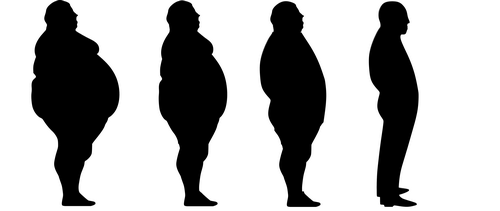Performance-enhancing drugs, particularly steroids, have become a controversial topic in the world of sports. While they are often associated with increased muscle mass, strength, and rapid recovery, their impact on other vital organ systems cannot be overlooked. One of the most concerning areas affected by steroid use is the cardiovascular system. Understanding how steroids influence heart health, blood pressure, cholesterol levels, and overall cardiovascular risk is crucial for athletes, coaches, and health professionals alike.
Overview of Anabolic Steroids
Anabolic steroids are synthetic derivatives of testosterone, designed to promote muscle growth and enhance physical performance. Athletes may misuse these substances to gain a competitive edge, often through high doses and prolonged use. However, these pharmacological agents can have profound side effects, especially concerning the cardiovascular system.

How Steroids Affect the Cardiovascular System
1. Impact on Blood Pressure
One of the immediate effects of steroid use is an increase in blood pressure. Steroids can cause fluid retention and elevate vascular resistance, leading to hypertension. Elevated blood pressure strains the heart and arteries, increasing the risk of long-term cardiovascular complications.
2. Alterations in Lipid Profile
Steroids significantly impact lipid metabolism, often resulting in unfavorable changes such as:
- Decreased HDL cholesterol: HDL is known as “good” cholesterol, essential for removing excess cholesterol from arteries.
- Increased LDL cholesterol: LDL is “bad” cholesterol, which promotes plaque buildup within arterial walls.
- Overall, these changes contribute to the development of atherosclerosis, a condition characterized by narrowed and hardened arteries.
The disruption in lipid balance heightens the risk of coronary artery disease and potential heart attacks.
3. Cardiac Structural Changes
Prolonged steroid use can induce cardiac remodeling, including:
- Enlargement of the left ventricle, which may lead to hypertrophy (thickening of the heart muscle).
- Alterations in the myocardium (heart muscle tissue), impairing contractility and relaxation functions.
- Potential development of arrhythmias, irregular heartbeats that can be life-threatening.
These structural changes compromise cardiac efficiency and can predispose athletes to heart failure.
4. Increased Risk of Thrombosis
Steroid use can promote coagulation, increasing the likelihood of blood clots forming within vessels. Thrombosis can obstruct blood flow, potentially leading to strokes or myocardial infarctions (heart attacks). This heightened risk underscores the dangers of steroid misuse among athletes seeking rapid performance gains.
The Middle Section: The Critical Link Between Steroids and Cardiovascular Health
The use of steroids can have a significant impact on an athletes cardiovascular system. According to https://steroidonlineuk.com/, prolonged use of steroids can lead to an increased risk of heart disease, high blood pressure, and changes in cholesterol levels. These effects can put athletes at a higher risk of cardiovascular complications, highlighting the importance of monitoring steroid use and its impact on overall health.
Long-Term Consequences of Steroid-Induced Cardiovascular Damage
Chronic use of anabolic steroids can result in irreversible damage to the cardiovascular system. Such consequences include:
- Coronary artery disease: Accelerated atherosclerosis can limit blood flow to the heart muscle.
- Heart failure: The combined effects of hypertrophy and impaired cardiac function can lead to heart insufficiency.
- Increased mortality risk: The cumulative cardiovascular damage raises the likelihood of fatal events like heart attacks and strokes.
Risk Factors Amplifying Steroid-Related Cardiovascular Issues
Several factors can exacerbate the cardiovascular risks associated with steroid abuse:
- High doses and extended duration of use
- Pre-existing health conditions, such as hypertension or hyperlipidemia
- Lack of medical supervision during steroid use
- Additional lifestyle choices like smoking, poor diet, and sedentary behavior
Preventive Measures and Recommendations
Given the serious implications of steroid-induced cardiovascular damage, it is vital to adopt preventive strategies:
- Avoidance of illegal or unprescribed steroid use
- Regular cardiovascular check-ups: Monitoring blood pressure, cholesterol, and heart function
- Healthy lifestyle: Maintaining a balanced diet, exercising regularly, and avoiding smoking
- Seeking medical advice before starting any performance-enhancing regimen
Conclusion
Steroids may offer short-term benefits in terms of muscle growth and athletic performance, but their adverse effects on the cardiovascular system pose significant health risks. From elevated blood pressure and cholesterol disturbances to structural heart changes and increased thrombosis risk, the impact of steroids can be severe and long-lasting. Athletes must weigh these dangers carefully and prioritize long-term health over temporary performance gains. Responsible practices, medical supervision, and awareness are essential to safeguard cardiovascular health in sports.
